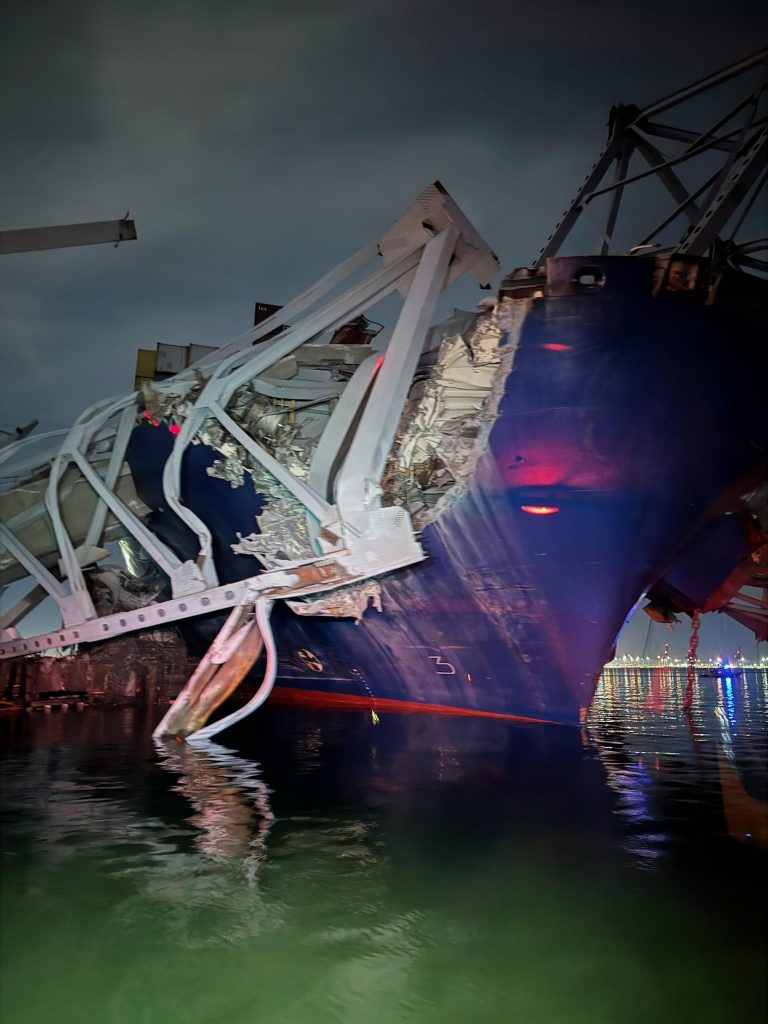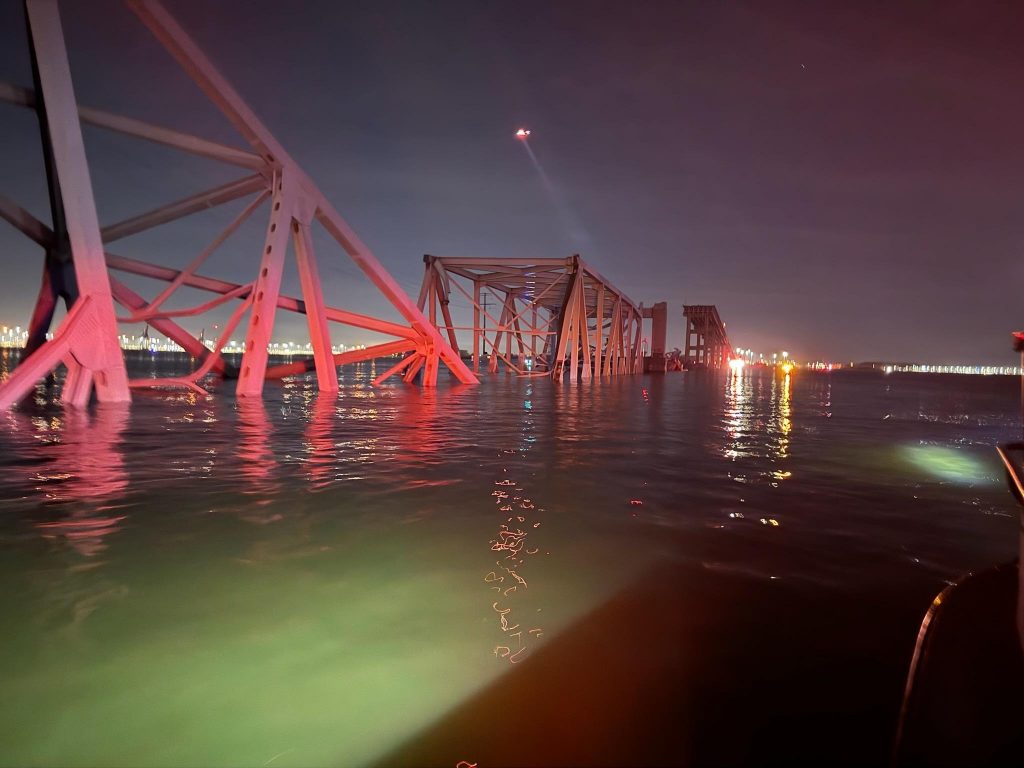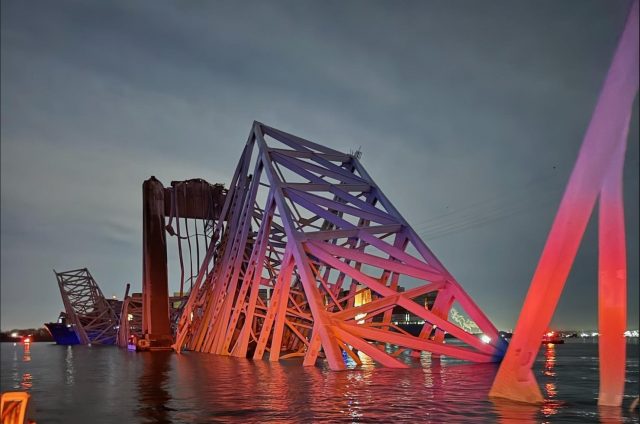
The Port of Baltimore faces a significant disruption following the collapse of Maryland’s Francis Scott Key Bridge after a cargo ship collided with it early Tuesday morning. The incident, involving the Singapore-flagged MV Dali container ship, has led to a blockade of the Patapsco River, potentially disrupting shipping activities across the United States.

The collision occurred around 1:35 a.m., with the cargo ship striking the bridge, causing substantial damage and leaving at least six individuals unaccounted for, according to reports from CNN. As rescue efforts continue, authorities are grappling with the uncertainty of how long debris from the collapsed bridge will impede access to the Port of Baltimore, a crucial hub for maritime trade.
For the shipping industry, the aftermath of the accident is expected to have far-reaching implications. Maritime lanes will be affected as carriers are forced to seek alternative ports of call due to the obstruction caused by the collapsed bridge. Sanne Manders, president of international at Flexport, emphasized the immediate concern surrounding vessels currently trapped in the bay, as well as the subsequent diversion of cargo traffic to other ports.

The Port of Baltimore, renowned for its deep harbor and extensive terminal facilities, serves as a vital gateway for trade, handling a diverse range of commodities and products. However, with ship traffic suspended indefinitely, the port’s operations are at a standstill, posing logistical challenges for both shippers and port officials.
Rachel Shames, vice president of pricing and procurement at CV International, anticipates a surge in cargo volume at alternative East Coast ports, such as Norfolk, Philadelphia, and New York, as a result of the diversion of traffic from Baltimore. This sudden influx of activity may strain the operations of these ports in the short term.
Jeff Leppert, executive vice president of modal operations at Redwood Logistics, highlighted the immediate impacts on hazmat shipments and fueling operations, underscoring the need for swift mitigation measures to address the disruption.
As authorities work tirelessly to assess the damage and restore access to the Port of Baltimore, industry stakeholders are bracing for the long-term repercussions of the incident. With major shipping lines like the Mediterranean Shipping Co. and Zim Integrated Shipping Services Ltd. impacted, the incident underscores the interconnectedness of global supply chains and the vulnerabilities inherent in maritime trade.
As the situation continues to evolve, stakeholders are collaborating to develop contingency plans and mitigate the disruptions caused by the collapse of the Francis Scott Key Bridge.










